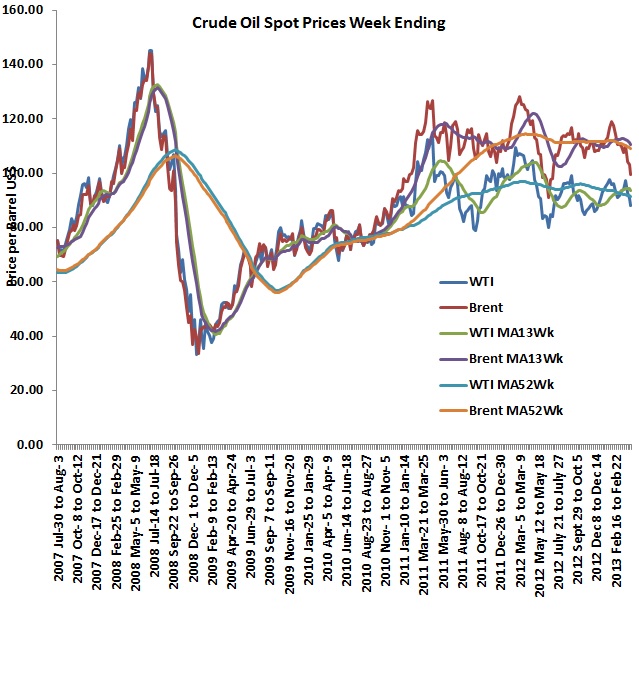In an interview with Portafolio, Fernando Gutierrez, Bicentennial pipeline manager, said that after two years of construction, the pipeline will be operational in July this year and will be filled with 1.2M oil barrels; according to Gutierrez: “This is more than the production of a day. It is the largest pipe that has been made in the country.”
Counts were up again to 35 which 10% above the recent average and just slightly below the long term average. Our 4-week Moving Average incident count was steady at 33.8 incidents and essentially so was the 52 week average at 36.9 incidents per week.
El Nuevo Siglo published an article about the consequences of fuel theft in the country. According to the article, this phenomenon generates economic, human and environmental losses.
It apparently only dawned on President Juan Manuel Santos last week at the annual mayors’ meeting that the new royalty system had left some producer municipalities without funds. This is the fourth of four articles we have published this week as the government tries to solve in a matter of days, a problem that has built up over a year. From a DNP press release, translated and with commentary by Hydrocarbons Colombia.

We do not usually comment on global petroleum trends but having stared at this graph for weeks now we thought it worth publishing. It shows weekly closing prices for the two most commonly discussed benchmark prices – WTI and Brent – in US dollars going back to just about a year before the collapse of Lehman Brothers, the generally accepted start of the current financial crisis.
It was widely reported in the Colombian press that Colombia and Ecuador signed an agreement for Colombian oil transportation by the Heavy Crude Pipeline (OCP) located in Ecuadorian territory. The purpose is to provide an alternative to the frequently interrupted TransAndino Pipeline.
It was widely reported in the Colombian press that Colombia and Ecuador signed an agreement for Colombian oil transportation by the Heavy Crude Pipeline (OCP) located in Ecuadorian territory. The purpose is to provide an alternative to the frequently interrupted TransAndino Pipeline.
The eighth round of peace talks between the government and the FARC began on Tuesday in Havana. Humberto de la Calle, chief negotiator of the government, said he has the “purpose of making decisions.”
As reported by Portafolio, the Comptroller General recovered US$4.1M from royalties through its audit program. The payment of this money was made by the insurer QBE, guarantor of the royalties in the departments of Meta and Casanare. According to the Comptroller, both departments made “risky fiduciary operations”, in which public money was put into a trust constituted by private individuals and got lost by not returning to the corresponding territorial public funds.
In an interview with El Espectador, MinMinas Federico Renjifo spoke about oil and environmental licenses, among other topics. Regarding oil production, Renjifo said: “This year we reached 1.014M barrels. This month we reached 1.027M barrels and we can reach 1.033M barrels. It has been a good indicator and the challenge is to maintain that production. We have increased reserves. Colombia requires a reserves increase.” He added that it is necessary to increase exploration, since there has not been a great discovery and current reserves are extracted from small wells.